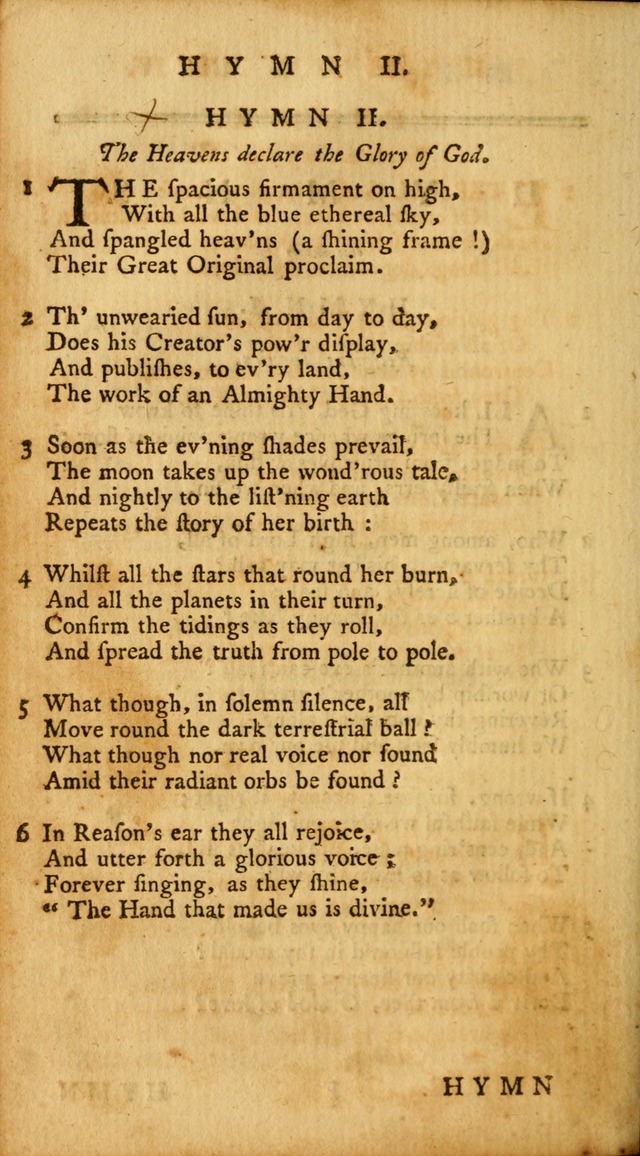Blog
A Message to X
Wednesday, August 25, 2021
The other day, a friend forwarded me a message from a friend of theirs. In it, the friend of my friend described their waning faith. They felt disconnected from their church, they were unhappy with being single, and they struggled with God’s behavior in Job 1. In inviting Satan to consider Job, wasn’t God participating in evil? The following was my response.
Dear X,
I'm a minister in Columbia, TN and a friend of Y's, who shared your concerns with me. I'm not surprised by your struggles. When the American version of Christianity is so focused on marriage/family, it's hard to be single! I also understand why your suffering would shake your faith. In my own life, I recently was diagnosed with ALS, Lou Gehrig's disease. It's terminal, has no cure, and probably will kill me within five years, even though I have a 11-year-old and a 9-year-old. This is, to say the least, difficult to deal with!
I would suggest, though, that what you're struggling with isn't really God's existence, but rather God's goodness. Logically speaking, even if God is participating in evil in bringing Job to Satan's attention, that doesn't show anything about God's existence one way or another. Both of us know lots of evil people who nonetheless exist. It's equally possible for God to be cruel and uncaring yet still exist too.
The problem you're identifying is that God's actions in Job 1 appear to be inconsistent with the Biblical portrait of a God who is loving and kind. You're saying, "A good God wouldn't have pointed out Job to Satan, so God isn't good." In your own life, your suffering leads you to question God's goodness.
However, the Bible does not claim that the goodness of God means that the righteous never will suffer. Indeed, the opposite is true. Exhibit A here is Jesus. He was perfectly righteous, yet a good God handed Him over to torture, humiliation, and death, despite the great grief this caused God. The Father and the Son shared in suffering to accomplish a greater good.
Consequently, if I have committed to following in the footsteps of Jesus, I also have agreed to accept the suffering that God allows. Jesus suffered despite and even because of His righteousness; should I expect anything different? Indeed, how could it be possible for the Christian to be conformed to the image of Christ without suffering? Christianity without suffering also is Christianity without the cross.
Suffering presents every believer with a choice. We can turn inward and dwell on our misery, or we can determinedly seek God through the trial. There is no promise in the Bible that we will be spared trial, but every trial will offer a way to glorify God. When we endure through trial, we accomplish the greater good He desires.
Back to Job 1. I think all of the above reveals the answer. God wanted to give Job the opportunity to accomplish a greater good. Part of the greater good was that the arc of the story revealed God to be compassionate and merciful, as per James 5:10-11. Job's story also gave believers before the time of Christ insight into the suffering of the righteous that otherwise wasn't available. If you have not read the book of Job beyond the opening and closing chapters, I strongly encourage you to do so!
I wish I could talk these things over with you in person. Regardless, my prayers are with you. May the Lord bless you richly, even in the midst of trial!
Matt Bassford
The Problem Isn't New Versus Old
Tuesday, August 24, 2021
For years, I’ve been an advocate of using quality hymns in worship. Not surprisingly, there are plenty of folks who disagree with me, particularly when I get to picking on contemporary praise songs that I don’t think are useful in congregational worship. They’ve even been known to get upset about it. It’s like I called their dog ugly or something.
One of the most common countercharges is that I don’t like the contemporary songs I don’t like because I’m stuck in the past. According to this way of thinking, I believe the only good hymns are the ones written in the 19th century, filled with “Thee” and “Thou”, and possessed of syntax so convoluted that only Yoda could love it. Oh, and the music has to sound like it was born on a pipe organ too.
There are certainly people who believe such things, but I’m not one of them. I think “Abide with Me” is a wonderful hymn, but not every hymn has to sound like “Abide with Me” to be good. Instead, my usual indictment of many modern worship songs is that 1) they lack strong Biblical content, and 2) the music is too complicated for a congregation to learn easily.
Neither one of these things is a necessary attribute of sacred songs written in the past 50 years, though such songs often fail on one or both counts. Rather, they are frequently problems because modern authors and composers generally don’t make good content and congregationality their priorities, particularly the latter.
Chris Tomlin doesn’t write music for me and my modest range. He writes music for Chris Tomlin, Chris Tomlin’s wonderful range, and Chris Tomlin’s backup band of professional musicians. Most brethren, however, have musical gifts much more like mine than like Chris Tomlin’s. Is it any wonder when they struggle with the Chris Tomlin repertoire?
However, when contemporary writers pay attention to content and the musical abilities of ordinary worshipers, they can turn out some excellent work that is eminently suitable for use in our assemblies. By now, most brethren are familiar with “In Christ Alone”, written by Stuart Townend and Keith and Kristin Getty. Together and separately, they’ve written plenty of other hymns that are comparable in quality and usefulness. The same goes for Bob Kauflin and the many writers who have been associated with Sovereign Grace through the years.
Recently, the Australian group CityAlight has attracted my attention (the tagline on their website is “Christian worship music with Biblically rich lyrics”, which is a good sign). Yes, they use drums and guitars, but brethren have been adapting denominational hymns for a-cappella use since the Restoration. We can do it here too.
Consider, for instance, the CityAlight song “Jesus Strong and Kind”, which I recently encountered for the first time. Its lyrics are:
1. Jesus said that if I thirst
I should come to Him;
No one else can satisfy;
I should come to Him.
2. Jesus said if I am weak
I should come to Him;
No one else can be my strength;
I should come to Him.
Chorus:
For the Lord is good and faithful;
He will keep us day and night;
We can always run to Jesus,
Jesus, strong and kind.
3. Jesus said that if I fear
I should come to Him;
No one else can be my shield;
I should come to Him.
(Chorus)
4. Jesus said if I am lost
He will come to me;
And He showed me on that cross
He will come to me.
(Chorus)
That’s good. It doesn’t look like the hymns Isaac Watts wrote, nor yet like the hymns I write. It’s still good. It reveals Biblical study and contemplation, it is focused, and it is deeply meaningful to the believer, especially those who also have spent time in study of the word.
If I may indulge in hymn-geekery for a moment, it’s also good because of its structural strength. Like many modern praise songs, it doesn’t use a strong rhyme scheme and can’t develop structure that way. Instead, it employs repetition, mixed with a few powerful word changes, as its structural element. The change from “thirst” and “satisfy” to “weak” and “strength” makes v. 2 meaningfully different from v. 1, even though most of the words are the same. However, the whole still has unity because of those similarities.
The music is also (or should be, at least) congregationally accessible. The use of verses means that brethren who learn music by rote don’t have to learn as much. The range is limited to a congregation-friendly octave, C to C in the original sheet music, though I’d probably raise it to D or Eb for four-part a-cappella use. I like the tune, too. Churches of Christ should be able to sing this one easily.
When was this fine piece of hymnody written? 2019. All it takes is somebody in the denominational world who cares about the Bible and congregational singing, and they’ll hand us something we can use.
Indeed, this happens frequently. This year, I wrote a workbook called Singing with Understanding for a Bible class I taught. Each lesson of the workbook pitted an unfamiliar hymn I liked against an unfamiliar hymn I didn’t so that the class could analyze the qualities of good and bad hymns. For the sake of fairness, I segregated hymns by time period: old good against old bad, new good against new bad. Of the four categories, I had by far the easiest time filling out the “New Good” category because so many of the best worship songs being written now are unfamiliar to the church.
That’s a shame. Rather than allowing CCM icons and praise teams to drive the additions to our repertoire, we ought instead to be looking for songs that are written for and will benefit the congregation. If we seek, we will find, and our song worship will benefit immeasurably thereby.
Death and Life in Jesus
Monday, August 23, 2021
Only God knows how many times y’all have heard me declare about some Bible passage, “This is one of my favorite verses!” However, favorite contexts are a bit rarer. On that list, though, must appear 2 Corinthians 4-6, the heart of what Clay called “the Great Digression” last week.
However, that much Scripture is a bit much for even me to tackle in a single sermon, so this evening, we’re going to zero in on the section from the middle of 2 Corinthians 4 to the middle of 2 Corinthians 5.
I think this portion is especially valuable because it shows us just how different the Christian perspective on life is from the worldly perspective. People of the world generally will agree that you need to go through life not causing trouble, looking after your physical health, and generally making yourself a priority. After all, if you don’t look after yourself, who will do it for you?
To Paul, though, life isn’t focused on the self. It’s focused on Christ, not only in seeking life through Christ but also in embracing His death. This evening, then, let’s consider how earthly existence looks when viewed through the lens of the death and life of Jesus.
In the text, this duality shows up in three contrasting pairs, and the first of them is SUFFERING AND SPEAKING. Let’s read from 2 Corinthians 4:7-15. In this text, two main things are going on. First, he describes his suffering. Second, he describes the effect that his continuing to speak has had on the Corinthians and others.
The first part of this text isn’t as famous as Paul’s later description of his hardships in 2 Corinthians 11, but this is still not a list that anyone would want to take on! He is afflicted. He is perplexed. He is persecuted. He is struck down. He is delivered over to death for the sake of Jesus. However, there are also things that he isn’t. He isn’t crushed, in despair, abandoned, or destroyed, and everywhere he goes, he displays the life of Jesus.
This teaches us a vital lesson: the Christian is never totally defeated. There might be all kinds of things going wrong in our lives, but God won’t let us be overcome by any of them. Additionally, the more we are given over to death, the more the life of Christ becomes evident in us too.
Indeed, suffering gives us a powerful voice. Like Paul’s suffering allowed him to bring life to many, our example of faith in suffering gives us a platform. When we stand strong through trial and continue to glorify God, we inspire other Christians, and we pierce the hearts of the people of the world.
Suffering is a fact of life. It will come to all of us. The question is how we are going to suffer. Are we going to suffer like a worldling or like a Christian? That choice makes all the difference.
The second pair is DYING AND BEING RAISED. Look at 2 Corinthians 4:16-5:5. Once again, the death-versus-life contrast is clear. Despite his faith—indeed, because of his faith!—Paul knows himself to be dying. However, he also knows that through Jesus, he will have an eternal life in heaven that is perfectly secure.
There are two things that we should draw from this. First, it shows us that dying should remind us of eternal life. Whether we feel it or not, it is true for all of us that our outer man is decaying day by day. In my case, I do feel it. One of the primary early-stage ALS symptoms is fasiculation. It’s a bunch of little involuntary muscle twitches all over my body. They are caused by motor neurons that have been poisoned by toxic proteins and are dying.
I feel them every hour of every day. They certainly remind me that my days are numbered! However, they also remind me that my inward man is being renewed every day, and that I have an incomparable and eternal weight of glory waiting for me. Thus it is for all of us. What hastens us toward our doom also hastens us toward our goal.
Second, this also shows us that we can be confident in our resurrection. In particular, Paul says that we can know that we will be raised because of the Spirit in our hearts as a down payment. Some might say that this is about the feelings of confidence that the Spirit gives us, but that doesn’t make sense to me. Have you ever heard of a bank that would accept a feeling as a down payment?
Instead, this has to be something tangible that fills us with justified confidence. In the case of first-century Christians, it was the miraculous gifts. When you could speak foreign languages or predict the future, that proved to you that your faith was more than a matter of wishful thinking.
Today, the Spirit carries out this work through the word. I don’t merely feel that I will be raised. I know that I will be because of the Biblical evidence for the resurrection of Jesus. The Scriptures assure me that my faith isn’t based on wishful thinking either.
Our final pair of the evening is BELIEVING AND FOLLOWING. This plays out in 2 Corinthians 5:6-15. Believing seems like an odd thing to link with death, but Paul does so in two ways. First, he points out that because of our faith, we no longer fear death but rather even long for it. It is much better to be away from the body and at home with the Lord!
However, and more provocatively, he says in v. 14 that believing in the death of Jesus leads us to die to ourselves. When we understand that the holy Son of God loved us so much that He died for us, it’s a life-changing realization. If we’re decent people at all, we don’t shrug that one off. It moves us to devote ourselves to Him like He devoted Himself to us.
The following part is twofold too. First, following Jesus leads us on the path to heaven that He blazed. When we are in heaven, we are not merely at home. We are at home with the Lord, and it is the presence of our Lord that makes heaven our home at all.
Second, when we die to ourselves because of the awe-inspiring sacrifice of Christ, we don’t stay dead. Rather than continuing to live for ourselves, we live for Him. He died and was raised, and we strive to conform to that pattern as closely as possible, knowing that union with His death means union with His resurrection too.
Where Transformation Starts
Friday, August 20, 2021
To most of us, the spiritual future of the United States looks pretty bleak. A Gallup report that was released earlier this year proclaimed that for the first time in any of our lifetimes, fewer than 50 percent of Americans claim to be members of a house of worship. Though much of this decline comes from the progressive denominations that are progressing themselves right out of existence, the numbers reveal that more conservative churches haven’t exactly thrived either.
In the face of such widespread moral decline, many Christians want to Do Something. They see all the ways in which the outside world is constantly becoming more wicked, so they turn to politics as the answer to these social ills. If asked, I suspect that many of these brethren would say that a more godly nation would be a better environment for raising children, spreading the gospel, and so forth.
However, the Scriptures suggest that this course, as reasonable as it appears, is not the one that God would choose for us. If we live in a time of moral decline (Is the pansexual truly less obedient than the hard-shell Baptist?), it is not the first such that God’s people have experienced. Indeed, the book of Judges chronicles a repeated cycle of spiritual decline, suffering, and spiritual renewal.
Within Judges, one of the most famous heroes of the faith is Gideon. Probably only Samson surpasses him in fame, and Gideon certainly surpasses Samson in righteousness! As the conqueror of the marauding Midianites, Gideon is enshrined forever in the roll call of Hebrews 11.
Many of us learned as children about the pitcher-torch-and-trumpet stratagem Gideon employs against the enemies of the Israelites in Judges 7. As we grew older, we may well also have encountered the story of Gideon’s fleece, in which God assuages the doubts of His chosen deliverer. However, the first command that God gives Gideon has nothing to do with either Midianites or fleeces. Instead, its object is much closer to home.
Gideon lives in a village called Ophrah of the Abiezrites. No less than the rest of the Israelites, the people of Ophrah have abandoned the Lord in favor of the worship of idols. Gideon’s own father, who apparently is a prominent man in the village, has set up an altar to Baal and an Asherah beside it. In Judges 6:25-26, the Lord tells Gideon to tear down Baal’s altar, chop down the Asherah, build an altar to Him, and offer sacrifices to Him using the wood of the Asherah.
Given that God already has told Gideon that he will defeat the Midianites, this instruction may well have perplexed the reluctant hero. What does some religious remodeling in the hinterlands of Manasseh have to do with getting rid of the foreign plunderers?
God’s point, I think, is that internal renewal had everything to do with solving the external problem. Gideon, as revealed by his panicked attempt to rescue the harvest, thought the Israelites had a Midianite problem. They didn’t. They had a God problem, and the Midianites were nothing more than a symptom of the real issue. If the Israelites addressed their God problem, soon they wouldn’t be troubled by the Midianites either.
The lesson for us here is powerful. We serve the One who ordains the rise and fall of nations. If we have good rulers in our country, it is because He has sent them. If we have wicked rulers who are leading the people astray, that too is because He has sent them. Our job is not to rearrange the rulers. It is to ask, humbly, where we ourselves are spiritually and why God might be sending us trials.
The Lord’s church today is not so wicked as the world, but neither is it so righteous as the Lord. Far too much of the time, the people who fill the pews on Sundays fill the rest of their weeks with worldliness. We don’t know our Bibles, we aren’t committed to reaching the lost, and our striving against sin looks more like compromise. To the extent that we are declining, does the blame belong to Hollywood, or does it belong to us?
Most of us would benefit from a reawakening of Gideon’s spirit, both within our churches and within our own lives. It’s time to tear down altars, chop down idols, and present to the Lord offerings in righteousness. It’s time to stop watching shows that we wouldn’t watch if Jesus were sitting next to us on the couch. It’s time to stop pretending that our porn habit is acceptable because it’s common. It’s time to confront the lie of a life that doesn’t have time for daily Bible study and prayer yet seems to have plenty of time for social media.
We cannot expect this program to be popular. Gideon tore down the altar of Baal at night because he was afraid of the reaction from his own community, and events proved him right. When the men of Ophrah figured out what had happened the next morning, they wanted to kill him. Ironically, they regarded the steps that would lead to their deliverance as a deadly threat.
So too for us. We do not cling to worldliness because we do not love it. We cling because we do. Seeking the Lord will be painful, certainly within our churches, but especially within ourselves. If we want to have success in chopping down our brother’s Asherah, we first must lay the axe at the foot of our own. We must confront our imperfections with relentless self-honesty and relentless determination to do better.
If we do, who can say what the future holds? Religious feeling in any country waxes and wanes through the centuries, and it certainly is possible that the COVID pandemic is sowing the seeds of a third Great Awakening. However, greater obedience is not fundamentally the duty we owe our country. It is the duty we owe our God and ourselves.
This article originally appeared in Pressing On.
The Rich Young Ruler and Grace
Wednesday, August 18, 2021
Last week, a Facebook friend of mine posted a lengthy complaint about what they perceived as too many rich elders and rich preachers in the brotherhood. Their discussion of Scripture focused on the story of the rich young ruler, and they illustrated the post with a cartoon of a camel trying to force its way through the eye of a needle.
As you might imagine, this post caused several things to come to my mind, but one of them was my conviction that there is more to the story of the rich young ruler than we commonly think. Simply because two different gospel writers tell the same story doesn’t mean they’re using it for the same purpose, and I believe that the story of the rich young ruler is one that is used differently in different gospels.
In Mark and in Luke, it’s about the problems associated with wealth, no doubt, but in Matthew, something else is going on. Matthew tells the same story, but he adds a parable to it, and that parable should transform the way we understand his account. This morning, then, let’s consider the connection between the rich young ruler and grace.
Not surprisingly, we’ll begin with Matthew’s discussion of THE RICH YOUNG RULER. It is found in Matthew 19:16-22. This is a familiar story, but I want to highlight some different elements this time through. The first concerns the rich young ruler’s problem. If you ask any of our Bible-class kids what his problem was, they’ll probably tell you, “He was rich and loved money.” That’s true, but it’s incomplete.
Let me suggest to you, in fact, that his most serious problem is the one that reveals itself from the first time he opens his mouth. He asks, “What good must I do to inherit eternal life?” In other words, he wants to save himself through his own good works. This sounds praiseworthy, but it’s impossible. We should read everything else that Jesus says to him as an attempt to get him to see that he’s trying to get to heaven on the wrong road.
The rest of the conversation unfolds from here. The ruler brings up all of his spiritual strengths, but Jesus zeroes in on his spiritual weakness—greed. Let’s not miss the forest for the trees here, though. Greed happened to be the ruler’s problem, but it didn’t have to be greed, and no matter what it was, the conversation would have gone the same way. There is something in every one of our lives that we don’t want to give up, and we know that there is because we haven’t stopped sinning. If we came to Jesus wanting to justify ourselves by works, He would be able to call us out on our weaknesses too—because wanting to justify ourselves by works is the problem.
Next, Jesus’ conversation shifts to THE APOSTLES. Let’s follow this through Matthew 19:23-29. Once again, this is a familiar text, and here we encounter the camel-and-needle’s-eye comparison. Some of you probably have heard that the needle’s eye was a narrow gate in Jerusalem, through which a camel could pass with great difficulty. However, there are a couple of problems with this claim. First, there’s no solid evidence that such a gate existed. Second, both Jesus’ discussion with the ruler and His later words make clear that this isn’t about great difficulty. It’s about impossibility.
It's impossible for a rich man to enter heaven through his good works, but you know what? It’s impossible for a poor man too. Indeed, it’s impossible for all of us. We all must depend for salvation on the God who makes all things possible. Without Him, we are in camel-through-needle’s-eye territory too.
Notice, though, Peter’s response to this. He hasn’t really been paying attention to Jesus. He’s been comparing himself to the ruler, and he likes what he sees. Peter points out that what the ruler wasn’t willing to do—leave everything behind for Jesus—he and the other apostles did. Justification by works, back on track!
Jesus replies that those who have followed Him will indeed receive an immeasurable reward. However, He also knows something that Peter doesn’t. Very soon, Jesus is going to ask Peter to do something, and Peter is going to deny Him three times. Peter will leave Jesus sadly too. Earning your way to heaven doesn’t even work for apostles.
In Mark and Luke, the context ends here, but in Matthew it keeps going, and its final section is THE PARABLE OF THE VINEYARD WORKERS. Let’s conclude this morning with Matthew 19:30-20:16. Notice first of all that we’ve got another one of those bad chapter breaks that Clay and I love talking about so much, and here’s how you can tell. Matthew 19 ends with Jesus’ statement about the first being last and the last being first, but almost same statement appears in 20:16. Jesus is offering this parable as commentary on His discussions with the ruler and the apostles.
As we read through the story, though, part of us can’t help feeling that the whiny workers have a point. If they had to work all day long to get a denarius, shouldn’t the guys who only worked for an hour get one-eighth of a denarius? They got the same thing, and that’s not fair!
In reply, the owner of the vineyard points out that his generosity to others doesn’t give anyone else the right to complain. The application is obvious. Even if somehow Peter did what he thought he was doing—earning his way to heaven—he would get the same reward as the Christian who came to the Lord late in life and never did much work at all.
Of course, Peter was not earning his way to heaven, and neither are we. I’m not willing to claim that I’m responsible for even one-eighth of my salvation! All of us depend on the generosity of our Master. We must not be like the rich young ruler and think that we don’t need Him. Neither should we be like the apostles and be impressed with ourselves because we think we’re doing better than someone else. Instead, we must seek diligently after His mercy and be thankful that we serve a God who gladly extends it.


